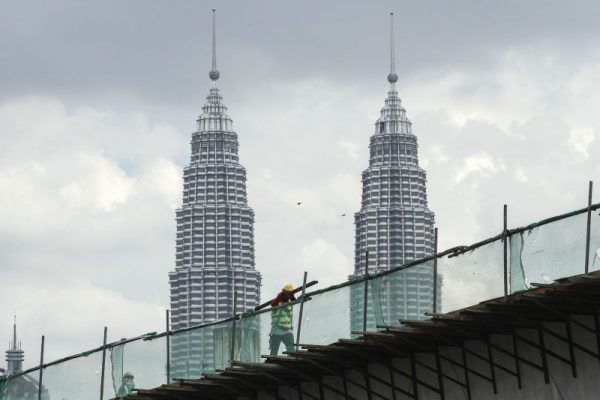KL 4th cheapest city for construction
Global design and consultancy for natural and built assets Arcadis has listed Kuala Lumpur as the fourth cheapest city to build in its International Construction Costs 2019 report. This was due to the inclusion of 50 additional cities this year instead of market changes as well as the Ringgit’s weak performance against the US dollar over the past few years. “Kuala Lumpur remains one of the least expensive cities for construction when compared to 2018 where it ranked 47th (in Asia),” it stated. Kuala Lumpur ranked 97 out of 100 countries in the world and is the 15th out of 18 countries in Asia, while Hong Kong came in first in Asia and third in the world. The higher the number, the cheaper it is to build in the city. (Malay Mail)
Pakatan Harapan one year on: ‘Good effort, but there’s more to do’
The government needs to buck up and deliver. That’s the key message from a survey, commissioned by The Star, of 1,079 Malaysians of their assessment of Pakatan Harapan’s performance, one year after the coalition’s takeover of Putrajaya. The findings also showed that respondents were willing to give the government until the next general election to deliver on its pledges. The survey found that 47.6% of respondents were not satisfied with the government’s performance over the past 12 months. Those who said they were satisfied made up 35.8% of the survey respondents, while 16.6% said they did not know. Among the respondents, 45.9% felt that the government was not on track and not making progress in fulfilling its pledges, while 35.2% felt that the government was on track. Pakatan’s five-year term following its win in the May 9 general election last year – which is calculated starting from the date Members of Parliament are sworn in – ends on July 16, 2023. (The Star Online)


ParkCity, CapitaLand to launch first JV project at Desa ParkCity
ParkCity Property Holdings Sdn Bhd and CapitaLand Ltd are set to launch their first joint venture (JV) development, Park Regent, a premium condominium project at Desa ParkCity. The 5.6-acre project, to be developed by the 50-50 partnership, will have 505 units across two towers, which the partners aim to start selling from the third quarter of this year. The development offers residents the unique opportunity to live by the waters of the famed Desa ParkCity Lake while enjoying stunning views of the area’s parklands. The luxurious units will feature details such as private lift lobbies for larger units, powder rooms in every home as well as beautifully appointed kitchens. Desa ParkCity, which occupies a 473-acre site, was launched by ParkCity in 2002. (The Edge)
Rate cut to have little impact on property sector
The latest overnight policy rate (OPR) cut is expected to have a negligible impact on the local property sector, in light of muted gross development product (GDP) growth. CGSCIMB said in a report yesterday that the OPR cut would spur property demand to some extent. “Our sensitivity analysis shows that every 25-basis-point (bps) cut in the borrowing rate would reduce the monthly housing loan instalment by only RM32 to RM69, or raise a buyer’s eligible loan amount by RM3,000 to RM15,000,” it said. Bank Negara lowered the OPR by 25bps to 3% on Tuesday. Based on historical trends, CGSCIMB said this is likely to result in banks lowering their indicative lending rates. The research house is maintaining a neutral outlook on the property sector, as it deems the majority of developers under its coverage have set lower new sales targets for 2019, signalling a challenging year. (The Star Online)

Rome Statute of the International Criminal Court
Malaysia to be removed from list of Rome Statute signatories
The United Nations will remove Malaysia as a signatory of the Rome Statute of the International Criminal Court (ICC). In a statement, Wisma Putra said that Malaysia would be removed from the list after the UN completes the necessary procedure. Malaysia had initially agreed to ratify the statute after acceding to it in March. However, in April, an upset Dr Mahathir said the government was “forced” to withdraw from it following confusions created by those with political interests. The ICC is the first permanent, treaty-based international criminal court. Its objective is to end impunity against perpetrators of the most serious crimes – genocide, war crimes, crimes against humanity and crimes of aggression. Only individuals and not the country would be taken to task. (The Star Online)





